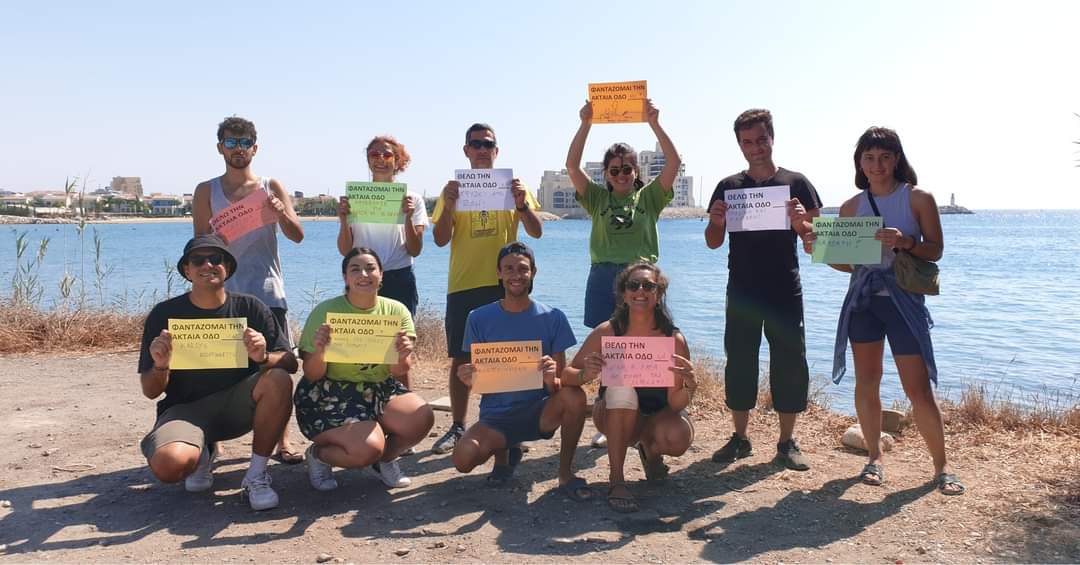By combining people power with scientific data evidence, brand audits are a great tool for pressuring companies over their role in plastic pollution
By Victoras Pallikaras
Brand audit is a citizen science initiative which records data on plastic waste to help identify the companies responsible for plastic pollution in order to hold them accountable and push them to address plastic pollution from their products. Through brand clean-up audits, citizens are urging companies to stop producing plastic materials that end up in our natural environment, and start developing sustainable and alternative solutions to plastic products. Friends of the Earth Cyprus are organising a beach clean-up and brand audit on Saturday, September 17 at 9 am, at Aktaia Odos in Limassol.
This event is part of a worldwide series of brand audits by the Break Free From Plastic (BFFP) movement, aiming to hold companies accountable for their role in prolonging the plastic pollution crisis, addressing the issue at its core and catalysing systemic change. Data collected will be part of an annual ‘Branded Report’ issued by the BFFP worldwide movement, which will showcase results and call out the world’s top polluters. Brand audit results are then used to ban plastics, create zero waste communities and plastic-free schools, file lawsuits against top polluting companies and advocate for policy change regarding single use plastics.
Therefore, by combining people power with scientific data evidence, brand audits are a great tool for pressuring companies to reveal their total plastic footprint, reduce the amount of plastic they produce, and redesign their products and packaging for refill and reuse.
What are the goals of a brand clean up audit?
- To see who is responsible for plastic pollution: By collecting data on plastic waste, we can identify who is responsible for the plastic pollution crisis and how to solve it. With brand audits, the narrative of responsibility shifts back to the companies that created the plastic pollution crisis in the first place and expose their false solutions and demand real change. The story of plastic pollution moves away from individual responsibility and action and focuses on the ones that are essentially responsible and should take further action.
- To hold plastic polluting companies accountable: The annual brand audit report reveals the data showing which companies were found to pollute in most areas and with which products. For instance, previous data from Cyprus showed that single use plastic bottles were the most common plastic item on our beaches, that originated from a specific company. These results are published worldwide, and therefore hold the top polluting companies accountable for their leading role in the plastic pollution crisis pressuring them to do better.
- To build a global movement: The brand audit initiative relies on collective people power to stand up to these big companies.
Changing the system at the source
No matter how hard we may try as individuals to avoid buying plastic and recycle whenever possible, our actions still need to be reinforced by a bigger and more systemic change. Plastic pollution is a systemic crisis that requires systemic solutions. The rate at which companies continue to extract fossil fuels to manufacture more plastic packaging significantly undermines the impact of our individual efforts, while plastic recycling rates are quite low. Companies need to act on their words and start designing their products in a way that does not include plastic.
To truly solve the plastic pollution crisis, we must move beyond individual action and organise collectively to address the problem at the source by fundamentally changing the way companies deliver their products to people.
That’s why by conducting brand audits, these polluting companies are identified and called to stop producing so much unnecessary single-use plastic in the first place. Companies are urged to move towards real solutions that eliminate the need for single-use plastic packaging altogether.
Supporting real solutions
Communities around the world are already taking matters into their own hands working to create solutions focused on plastic reduction. People are supporting new business models using community-based reuse and refill systems. We can find examples of sustainable businesses that promote refill in Limassol.
Delivery systems are popping up in Germany, that eliminate the use of single use plastics. Imagine having your coffee delivered in a non single-use plastic cup. It is possible and it is being implemented already! Also, extended producer responsibility laws are requiring companies to pay the full cost for the collection and waste treatment at the end of life of their products.
But even as this ground-breaking work is growing, companies are continuing to pump unmanageable single-use plastic into our communities. Companies sell us everything from drinks, snacks, soap, and even fruit and vegetables packaged in single-use plastic. Plastic that is unnecessary, unwanted and inexcusable. It’s time for these companies to support our communities by investing in alternatives and phasing out single-use plastic once and for all.
Join us at our brand audit event and let’s find out which companies are plastic polluters of our beaches!
Victoras Pallikaras is an Environmental Scientist with an MSc in Environmental Policy and Management, working as a project officer for Friends of the Earth Cyprus







Click here to change your cookie preferences